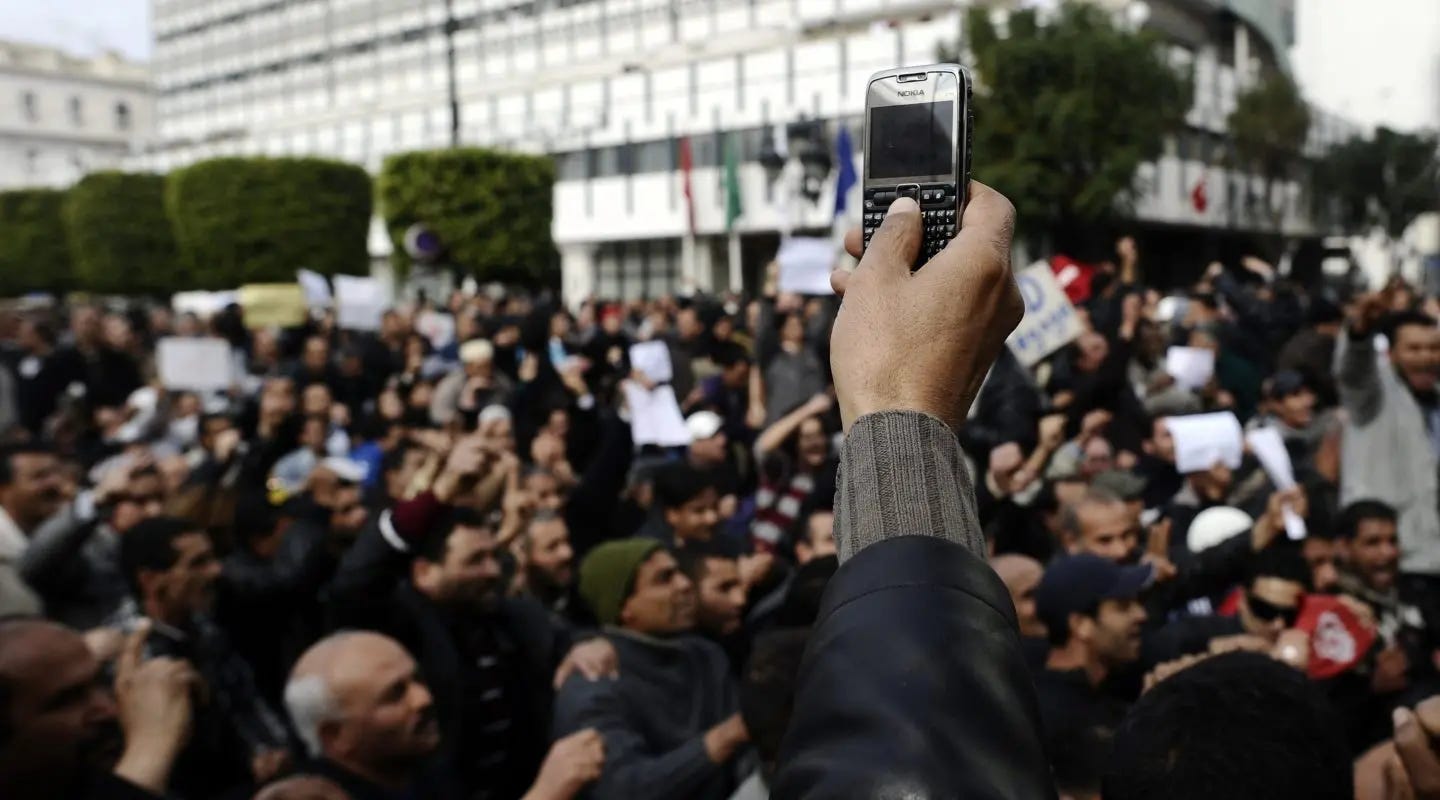Revolt, Populism and Reaction
The turbulent 2010s may be a harbinger of things to come
On December 17, 2010, an insignificant young man, a fruit vendor, set himself on fire in the obscure Tunisian town of Sidi Bouzid. His name was Mohamed Bouazizi, and he offered up his life in protest against the humiliations he had endured at the hands of government agents. The incident might have passed unnoticed—but someone snapped a photograph. The image of Bouazizi in flames, stumbling across a nondescript public square, imparted a terrible lesson in the effects of alienation and despair. By the time he died of his burns on January 4, 2011, the Tunisian public had taken to the streets. Ten days later, Tunisia’s dictator, Zine El Abidine Ben Ali, in power since 1987, fled the country just ahead of a sweeping tide of protests.
A man on fire had inaugurated what we now somewhat uneasily call the Arab Spring. (I won’t use scare quotes for the label: but what seemed like a blossoming of freedom at the time was soon consumed, like Bouazizi himself, by fire and blood.) Dictators who had strutted on center stage for a generation, sitting atop structures of arbitrary power that had been in place for half a century and more, suddenly wobbled, toppled, fled, expired—or brutally fought back to retain a shred of their past glory. The mood of revolt in Tunisia spread like a contagion to Egypt, Yemen, Bahrain, Syria, Libya, even Saudi Arabia: consequences varied, but it became clear that strange new forces had been let loose upon the world, and not only in the Middle East.
The Arab Spring marked the first upheaval in a new decade that would be shaken by turbulence and revolt. The forces at play were global and secular, and they wrought profound structural changes that only recently have come into focus. Today, the public in large numbers can challenge, and sometimes defeat, the monstrous Leviathan of modern government. And insignificant people can bring down privileged elites.
In theory, this seems like a positive development. Empirically, it’s been problematic. In the Arab world, the effects have been cataclysmic. Libya and Lebanon have disintegrated as nation-states, while Syria survives as a rump, colonized by Iranians and Russians. For years, a bloodthirsty caliphate calling itself the Islamic State (ISIS) ruled an area the size of Great Britain in parts of Syria and Iraq. Nobody knows how many died at the hands of ISIS: probably hundreds of thousands. Dictators have fallen, but with the exception of Bouazizi’s Tunisia, authoritarians are still everywhere in charge. Meanwhile, disruption and revolt continue in Algeria, Egypt, Iran, Iraq, Lebanon, and Sudan.
There are deep causal connections between this turmoil in politics and the imperial advance of digital platforms that has characterized the 21st century. Indeed, to a remarkable extent, the revolts of the Arab Spring played out on Facebook, YouTube, and satellite TV.
For the first time in human experience, the decisive struggle was over information rather than power—and for good reason. Government institutions, established on the top-down principles of the industrial age, required control over the flow of information for their legitimacy. But a tsunami of digital content has swept away that control and that legitimacy, and the institutions that depended on these conditions have lapsed into crisis. This holds true for all government institutions, from the White House to the local police.
The elites in charge once spoke from on high with the voice of authority, certain that the masses would never talk back. But today the public, riding that tsunami of content, is aware of every government failure, error, and falsehood, and it aims an endless roar of frustration and condemnation at the mighty of the earth. The disaffected find one another on encrypted applications like WhatsApp and Telegram, then materialize in vast numbers to disrupt a shopping district or an airport. This digital dispensation has brought rulers and ruled into unbearable proximity. The elites have responded by fleeing ever higher into the top of the pyramid. The public, in turn, has been driven by a loathing of the existing system that borders on nihilism. Meanwhile, the structures of power, adapted to a simpler, slower era, have begun to crack apart at the seams.
Democracy has not been spared. On May 15, 2011, the Spanish political establishment was shocked by the outbreak of a street revolt on the Arab model. The protesters called themselves indignados—“the outraged”—and their message to Spain’s elected officials was, “You do not represent me.” Before disbanding in December, the indignados and their movement helped defeat a once-popular prime minister, José Luis Zapatero, whose ruling socialist party was shredded in the general election. They also shattered the country’s placid political landscape, in which the center-left had competed on the margins with the center-right. Spain today has trouble cobbling together a majority to form a government.
Beginning in 2011, significant protests against democratic governments have erupted in Bolivia, Brazil, Chile, France, Israel, India, the Netherlands, and the US, among other exotic locations. The rebels have been strong in outrage but weak in organization, leadership, and a coherent ideology. They hail from the digital wilderness and are divided into mutually hostile war-bands—but they are brought together and energized by a shared sectarian loathing of what they see as the sinful status quo.
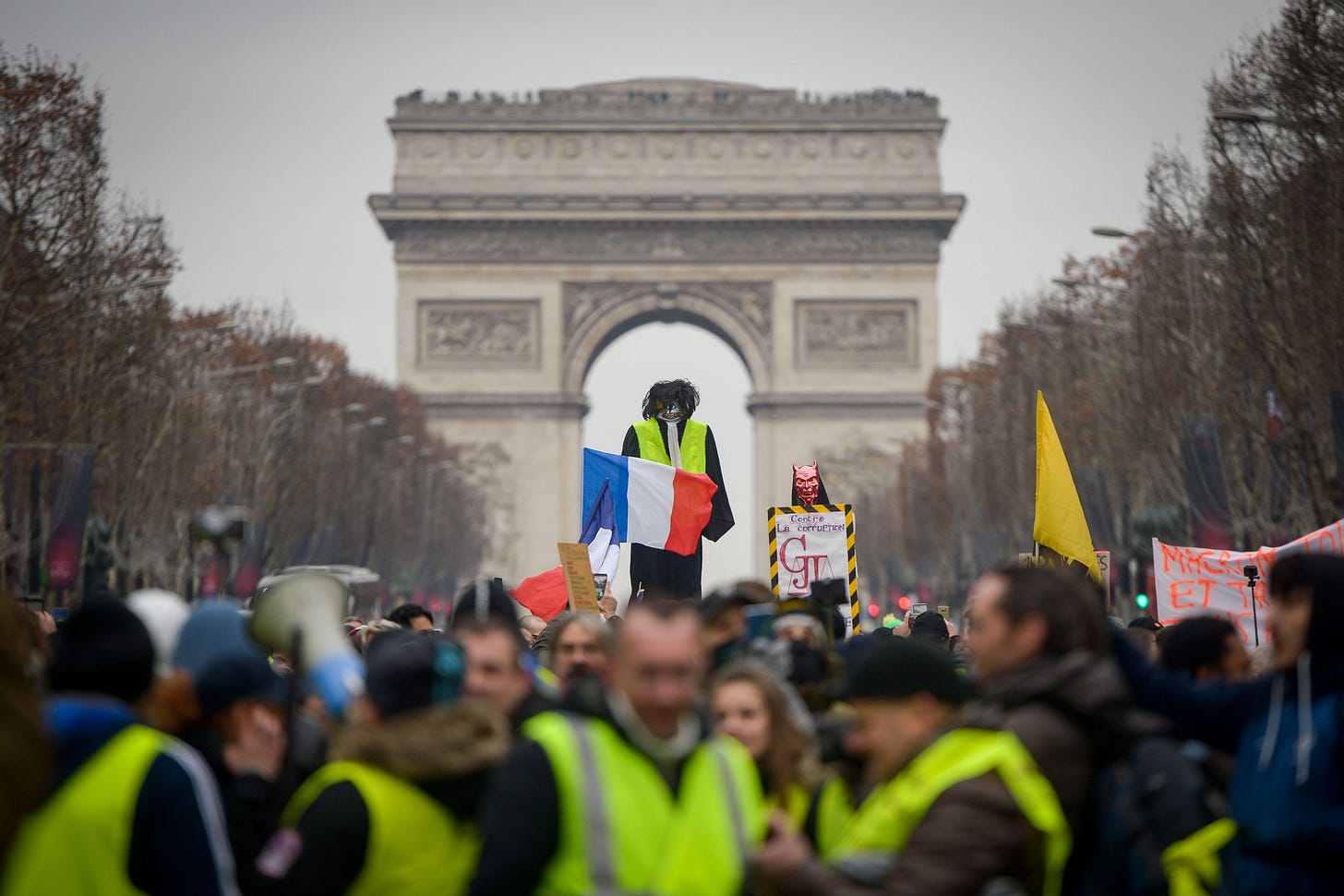
The public in revolt disdains proposals or alternatives: it stands against. The insurgents in Tahrir Square stood against the Egyptian dictator Hosni Mubarak. The Yellow Vest Movement in France stands against a democratically elected president, Emmanuel Macron. Few distinctions are made between free and unfree systems: the public’s quarrel is with modern government as such. It is held to be intolerably remote and corrupt. So, while the indignados raised the banner of “real democracy” and the Occupy Wall Street protesters in the US claimed to represent the “99 percent,” in practice the ideal of direct democracy, much applauded by denizens of the web, has been wielded like a cudgel to smash at the established order.
The great political divide of our time is between the public and elites: and what matters to the public is to strike a blow at the elites.
The astounding events of 2016, which included the British vote to leave the European Union and the election of Donald Trump to the US presidency, become comprehensible from this perspective. Britain’s elites, in a solid phalanx, campaigned to remain in the EU. Precisely for that reason, the public voted the other way.
Likewise, Trump was an impossible candidate and president: he said and did outrageous things, possessed zero government experience, and seemed to be an ideological cipher. The public that supported Trump chose him as its instrument precisely because of, not despite, these apparent failings. That the president ranted about his opponents on Twitter only increased his charm as a rule-breaker. That the elites treated him like the Beast of the Apocalypse only enhanced the appeal to his base. Charges that Trump had an “authoritarian personality” and lamentations that democracy was dying in darkness left the president’s supporters cold—the public had long ago written off democratic politics and democratic government as an undemocratic sham. The aim was to disrupt the system: and what better way to achieve this than to insert Donald Trump at the center?
The populism Trump represented has contributed mightily to the instability of the last decade. The public has elected outlandish characters to high office across the world: Johnson in Britain, Orbán in Hungary, Duterte in the Philippines, Salvini in Italy, Modi in India, Obrador in Mexico, Bolsonaro—whose statements make Trump, by comparison, sound like Miss Manners—in Brazil. In France, Germany, and the Netherlands, populist figures have gained ground. These are disruptors and system-smashers. If they aren’t exactly Mussolinis-in-waiting, neither are they overly concerned with the rituals and rhetoric of democracy. The populist, like the public, aims to stand against. A fundamental question, if we are to understand our moment, is whether these off-key politicians are the cause of the public’s surly mood or merely a symptom of it.
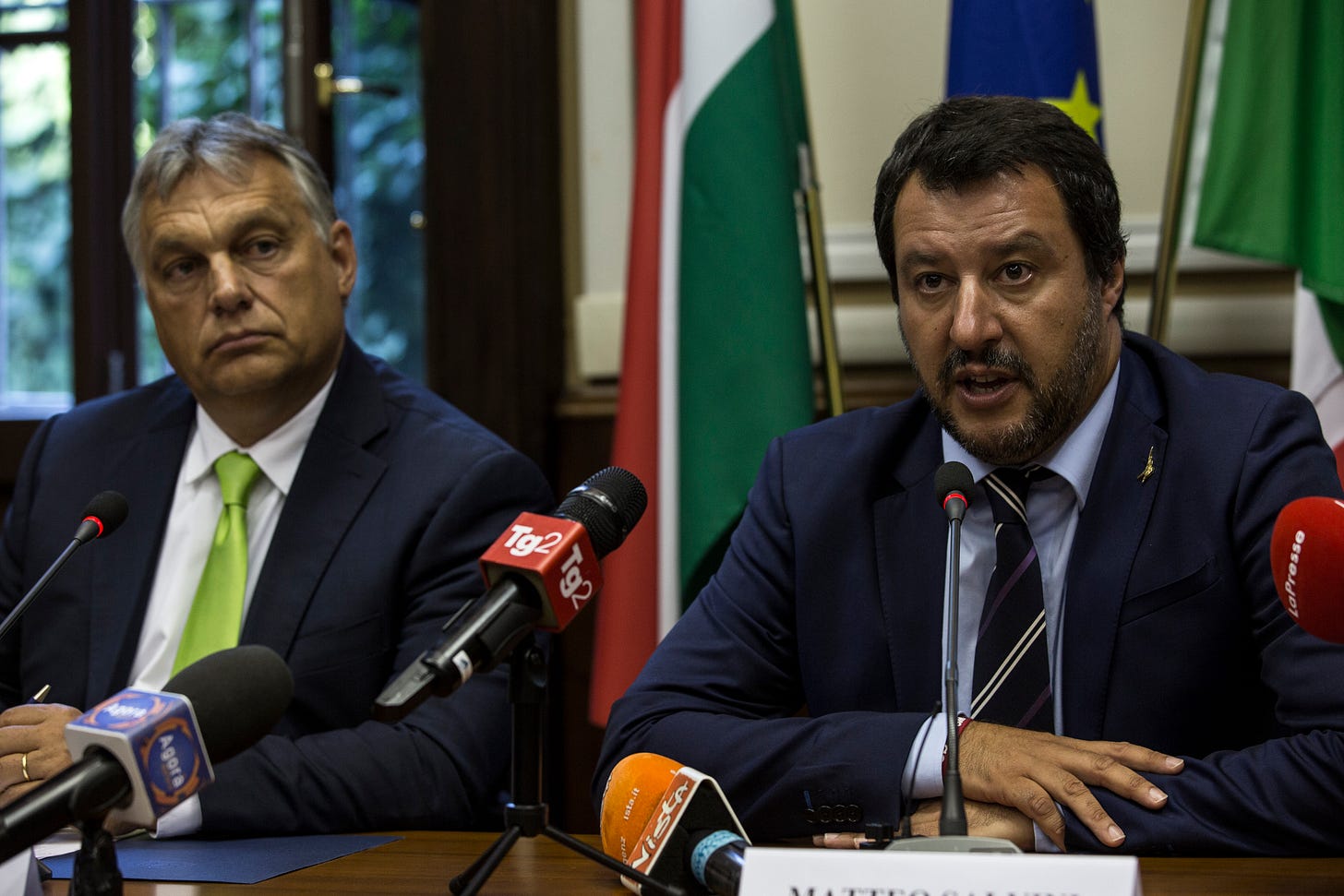
For our demoralized political and media elites, the populist is the ultimate archvillain, responsible for the multiple disasters of recent years. By their account, the populist gains power through lies. Boris Johnson, for example, lied about the EU’s cost to Britain. Donald Trump lied about everything. Several news outlets have kept a running tally of presidential lies: according to the Washington Post, Trump had blustered his way past the 10,000-lie barrier by April 2019.
Such lies, disseminated by social media, are said to stir up the worst instincts of the public: racism, Islamophobia, and so forth. This is the murky realm of “fake news,” “post-truth,” and the dark lord of manipulative illiberalism, Vladimir Putin. The persuasive value of the truth is believed to have somehow collapsed. The elites, who claim to stand for scientific rigor and rationality, in this way explain why they have been defeated and disarmed. The brave new upside-down world, to them, is an artifice of cunning demagogues.
Whether the current crop of populists tell more or better lies than their elite predecessors can be left an open question. But that they are the prime movers in a decade of revolt may be safely doubted. The arrow of causation points in the opposite direction. From Tunisia in 2011 to Hong Kong today, the majority of protests have been leaderless—quite consciously so. These spontaneous outbursts have developed out of the same set of symptoms as populism: the decline of traditional political parties, for one. Both share the same digital vectors of communication, the same rhetoric of rage. The far spread of populism, rightly considered, should be viewed as an argument against the notion that it is personality driven. Structural and global factors appear to be at work.
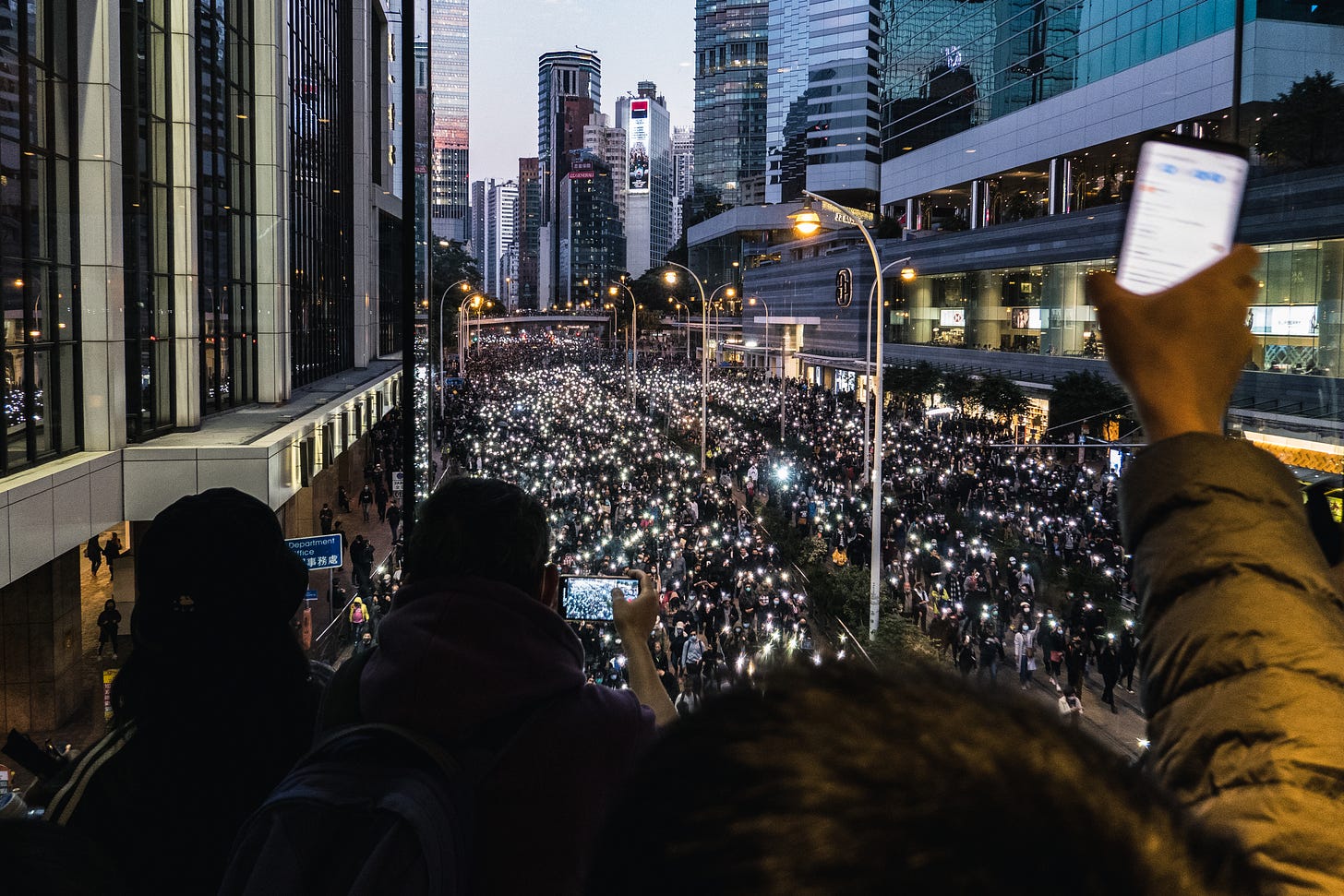
The public has voted bizarre characters into office for a very simple reason: democratic political institutions, and the elites who manage them, have refused to offer meaningful alternatives. The populists in all their strangeness are a message from the public that this narrow status quo cannot stand. In the age of post-truth, however, nearly the opposite message has been received by those at the top of the hierarchy.
Since 2016, the elites have launched a series of counterattacks against populism. In Britain, the public had voted to “Leave” the EU, but a Parliament with a “Remain” majority for three years refused to implement Brexit in any form—or to move to a general election to settle the matter. The prime minister, Theresa May, opened the door to a second referendum before being forced to resign. In Italy, Matteo Salvini was squeezed out as minister of the interior by a procedural maneuver. The current Italian government, composed of establishment cats and antiestablishment dogs, seems to exist simply to avoid elections that might result in Salvini becoming prime minister, which polling indicates would be likely if a vote were held today.
Meanwhile, in the US, the anti-Trump establishment has invested tremendous levels of energy dreaming up ways to remove the president. For two years, elite hopes rested on the special counsel’s investigation into Russian electoral meddling—but when that process came up short, the House voted to impeach Trump on an entirely different bill of particulars.
The pervasive temper among elites has been reactionary: driven by the wish to erase 2016 from memory and return to something like the comfortable top-down control of the 20th century. For this to happen, the chaotic digital environment first had to be tamed. The public had to be pushed off the commanding heights of the information battlefield, so that truth and science, as defined by those who understand them best, could be restored to their former places as unquestioned sources of authority.
To achieve this objective, ruling elites in the US and Europe have fined, taxed, and sought to “regulate” on various principles the big digital platforms that host much online content. Mark Zuckerberg of Facebook has assumed a place in the elites’ roster of villains comparable only to that of Putin and Trump. Zuckerberg and other masters of Silicon Valley have been dragged to Washington, DC, for congressional hearings and castigated there with rare bipartisan zeal. Several Democratic presidential hopefuls are running on a promise to “break up” Facebook, Google, and Amazon. One of them, Elizabeth Warren, has accused these companies of having “too much power over our economy, our society, our democracy.”
Elite reaction has been fierce yet, so far, largely futile. Boris Johnson finally got his general election and earned a landslide victory under the slogan “Get Brexit done.” Impeachment has packed little political punch—President Trump’s approval ratings have actually improved during the process. Activists around the globe have moved away from Facebook—but only in favor of applications like Telegram that are much tougher for governments to crack. Finally, in 2019 the public’s mood of anger and negation seemed to reach critical mass.
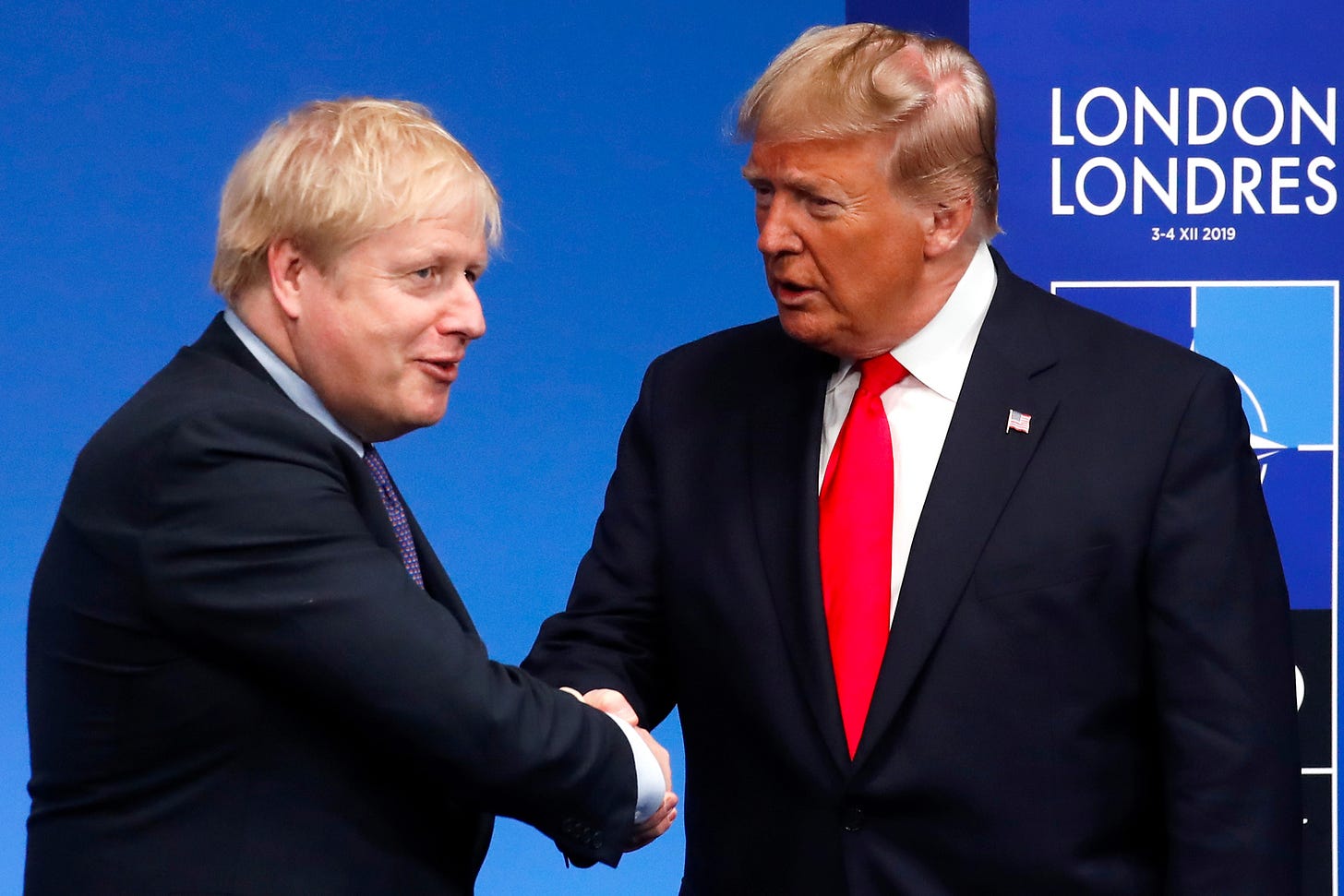
Almost exactly eight years after Mohamed Bouazizi’s momentous self-immolation, large-scale protests broke out in Sudan. These continued into 2019, beginning a new cycle of disorder in the Muslim Middle East: Algeria, Iran, Iraq, and Lebanon have since been engulfed in bloodshed and unrest. As in 2011, but on a greater scale, the virus of revolt spread relentlessly outward to infect the world. France was shaken by the Yellow Vest Movement. Hong Kong blew up over a new extradition law. Chileans swarmed into the streets to condemn a 4 percent increase in mass transit fares. Bolivians rebelled against a third term for Evo Morales and succeeded in ousting him. At least 25 significant street protests rocked the world in 2019, many of them running concurrently; most of them are continuing as I write these words. By the end of the year, two dictators and one would-be strongman had been overthrown. Several elected governments had resigned, while others, mired in constitutional crises, cast about helplessly for the means to pacify the public.
The rise of the public as a leading actor on the political stage, and the angry impulse to repudiate the established order, provide the theme for the 2010s. The decade ended in a flood tide of revolt—and the meaning of it all is up for grabs. The human race seems to be wandering in the wilderness, caught in a migration out of the industrial age to parts unknown. The public is trapped in a mesh of rejection and negation, unable to articulate positive demands. The elites face a dire choice: between reacting on behalf of the old order or leaping into the void of structural reform. Democratic institutions, adapted to a largely vanished era, continue to bleed authority and legitimacy at a dangerous rate.



